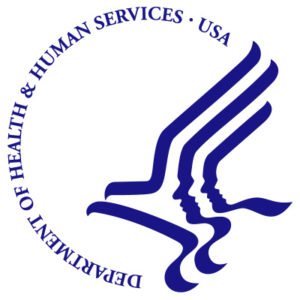 In September, the Health and Human Services Department released a report detailing their argument for a new rule saying that states can’t deny Title X funding to “focused reproductive health providers” — which is code for Planned Parenthood. Title X was a provision of the Public Health Service Act, originally enacted in 1980 and dedicated to funding family planning programs. Under their argument, family planning and women’s health services which qualify for Title X funding are offered by Planned Parenthood, and regardless of what else Planned Parenthood does, they can’t be denied the Title X funds.
In September, the Health and Human Services Department released a report detailing their argument for a new rule saying that states can’t deny Title X funding to “focused reproductive health providers” — which is code for Planned Parenthood. Title X was a provision of the Public Health Service Act, originally enacted in 1980 and dedicated to funding family planning programs. Under their argument, family planning and women’s health services which qualify for Title X funding are offered by Planned Parenthood, and regardless of what else Planned Parenthood does, they can’t be denied the Title X funds.
If such a new rule is enacted, all the state and federal efforts to redirect funding to Community Health Centers would thus be rendered useless.
According to HHS, Planned Parenthood provides services that are more “effective” and “high quality” than other health centers. But this HHS recommendation is littered with agenda-driven jargon that bulldozes state rights, disregards fair reporting, and invents unclear qualifications.
- States would no longer be able to control who receives Title X funding. States are the best judge of which entities in their state serve their people best, but would lose jurisdiction to make those geographically-specific qualifications.
- HHS is trying desperately to undo the work of state legislators who have defunded Planned Parenthood. HHS is effectively disregarding the legislative branch and the public will in favor of further government executive overreach. Bottom line: the Obama Administration is protecting big abortion.
- Community Health Centers outnumber Planned Parenthood clinics 20 to 1; they would be able to absorb the influx of patients, especially with funds further redirected away from Planned Parenthood and towards them.
- Some women may not know a Community Health Center option is available to them, but a marketing push to help them know all the places they can get help can aid this transition.
- Planned Parenthood makes enough profit to be able to make up for the lack of federal funds. Thus, any real reduction in Planned Parenthood’s services is due to a failure of Planned Parenthood to prioritize their budget to women most in need, not a failure of the direction of state funds. In some states, Planned Parenthood would still receive Medicaid reimbursements for their medical services, even if the Title X funding source is removed.
- The reporting methodology of the HHS report relies on demographic trends to generate numbers, not hard data such as assessment of women’s true needs, structures, processes, and outcomes that would be required for a full audit of the effectiveness of Title X recipients and subrecipients.
- When national numbers are considered, community health centers are providing more services in both number and type, and serving more patients, than Planned Parenthood.
- The HHS arguments that reproductive-focused health clinics are more “effective” and provide “high quality” care are subjective terms that beg further definition.
- The actual goal of Title X includes making provision for improving the health of women and infants. Considering Planned Parenthood’s narrow focus on reproductive healthcare for women only, Community Healthcare, which cares for a broad spectrum of health needs for women and children, is actually more effective at fulfilling Title X’s stated purposes.
- If HHS is going to adapt their rules for recipients, they would be wise to consider the larger trend in healthcare towards more comprehensive care, not more specified services.
- Thirty-one citations of the HHS report are generated by a biased source — a research arm that used to be part of Planned Parenthood.
Many of these points are outlined in a bipartisan letter authored by Joni Ernst and Diane Black, available here in its entirety. The HHS rule is available to read here. You can view more information about why women don’t need Planned Parenthood here.
Chaney Mullins serves as Special Projects Writer for Concerned Women for America.

